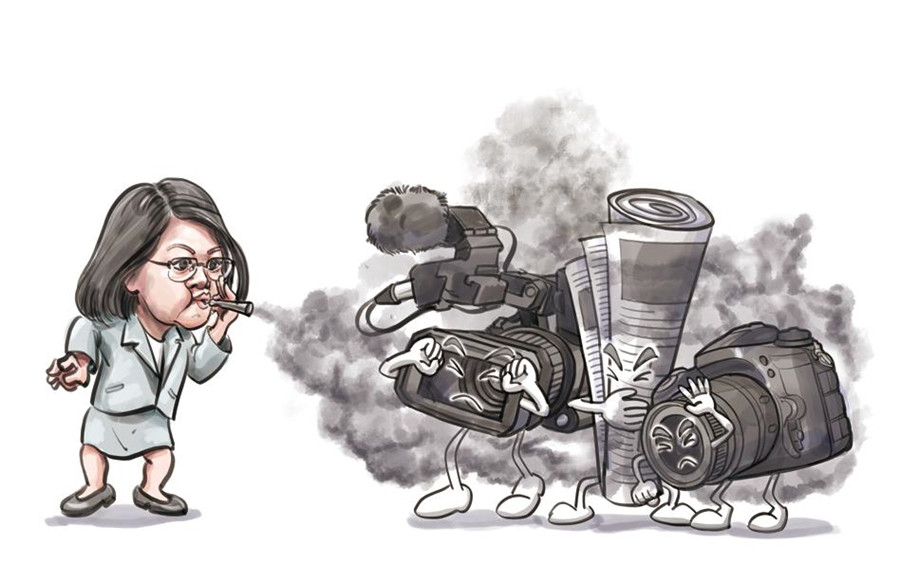
By Tang Yonghong
Years of confrontation between Russia and Ukraine over security and other strategic issues has led to the ongoing military conflict. However, the unfolding humanitarian crisis in Ukraine could have been prevented had the two sides focused on resolving their differences through compromise and some Western countries led by the United States not aggravated the situation through their actions and statements to realize their own political interests.
But has the unfolding tragedy in Ukraine, as many observers tend to believe, shaken Taiwan's ruling Democratic Progressive Party enough to reconsider its pursuit of "Taiwan independence" or prompted Beijing to soften its stance on national reunification?
To begin with, it is wrong to draw an analogy between the Russia-Ukraine conflict and the Taiwan question. They are basically and completely two distinct issues.
The relationship between Russia and Ukraine is that between two sovereign states, while cross-Straits relations are those between two parts of one country-that is China.
The Ukraine crisis broke out because the foreign policy and diplomatic and geopolitical moves of some countries posed a threat to the national security of another. As for the Taiwan question, it has its roots in the activities of separatists who, in collusion with foreign forces, seek "Taiwan independence" and are threatening the nation's sovereignty, security and core interests, and curbing its development.
But despite the differences in the Ukraine crisis and the Taiwan question, if the DPP authorities keep advancing their political agenda of "Taiwan independence", Beijing will be forced to resort to non-peaceful measures to realize national reunification.
The Chinese mainland firmly believes that peaceful reunification of the island with the motherland is in the best interest of the Chinese nation and all the Chinese people. In fact, it has been trying its utmost to realize reunification through peaceful means.
However, peaceful reunification is possible only if both sides, the mainland and Taiwan, accept that there is only one China and are willing to work together to promote national reunification. But the DPP continues to defy the 1992 Consensus that there is only one China, and Taiwan is part of China. What's worse, the DPP has been seeking pro-independence activities in and out of the island.
Beijing will never allow secessionists to gang up with anti-China forces and split the country. As it has already passed the Anti-secession Law-in 2005-Beijing will use force and take whatever other measures necessary to reunite the country.
China's national reunification and rejuvenation are two historical tasks that must be completed. And whether or not reunification is achieved through peaceful means or not depends on the situation.
Separatists on the island know that it is impossible to divide the nation on their own and hence are seeking the help of foreign forces led by the US.
Yet the Western powers including the US, which have been hyping the cross-Straits disputes to fulfill their own goals, will not come to the help of the separatists if push came to shove.
Given the comprehensive national strength of China, thanks to its rapid economic development, and the highly interdependent nature of the Chinese and US economies, Washington is highly unlikely to enter into any direct military conflict with Beijing.
More important, what is in the best interest of the Chinese people is of no concern to those Western powers that see and have been using Taiwan as a pawn on their geopolitical chessboard. As such, the pro-independence DPP should realize, sooner rather than later, that the mainland is determined and has the capability to achieve national reunification, peacefully or otherwise.
In fact, the mainland has repeatedly warned that any attempts to seek "Taiwan independence" will hit a dead end, and national reunification can and will be realized.
Given the unfolding tragedy in Ukraine, therefore, it would be a wise move for the DPP authorities to pull back from the precipice of "Taiwan independence" and take the right path toward reunification.
The author is deputy director of the Taiwan Research Center at Xiamen University.

 中文
中文





